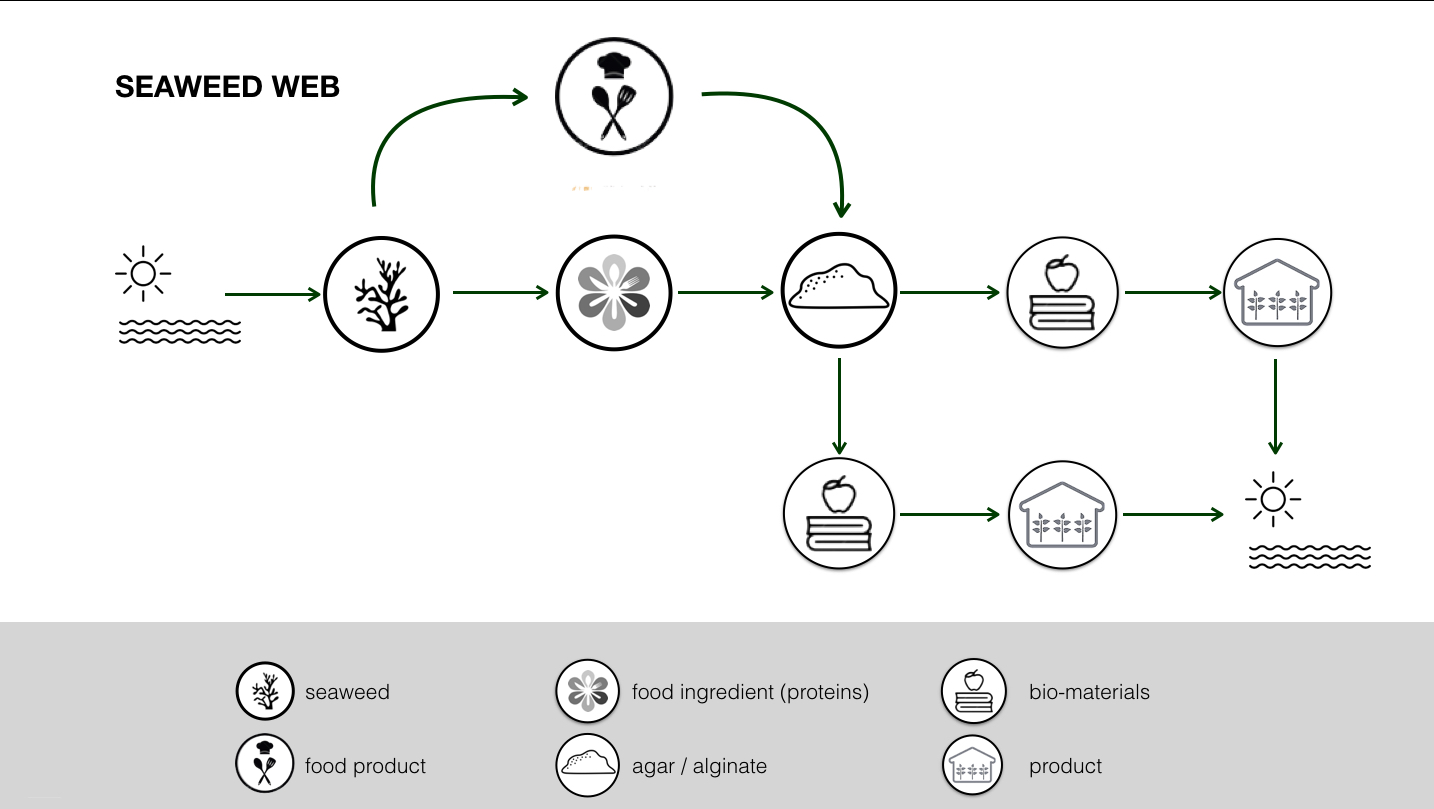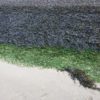
Seaweed Web
Seaweeds play an important role in many eco systems, providing the foundation for aquatic food chains. If handled responsibly, there are many more opportunities for seaweed to create a positive impact on climate change and well being. Seaweed can be a sustainable source for food, feed and energy. It is already used in many food application as thickening agent, for example in toothpaste, chocolate milk or as flavouring agent in stock cubes. It can also be used for medicine and cosmetics, and for fibre for textiles. But it also can be used to make materials like bioplastics.
In Blue City Lab, BlueBlocks researches seaweed-based materials and applications. Biodegradable bioplastics are made from local seaweed species. The left over plant-material after extraction processes is pressed into fibre board material. These materials form the starting points for circular product design.
The bigger aim is to unite the use of seaweed for healthy food, sustainable materials and circular applications into one local zero waste seaweed web. Within such a web, large scale seaweed farming, surplus food and residual material streams find optimal valorisation. Waste streams can therefore eliminated by forming cross-sectoral networks.
Within this research, the two major research projects are
Seaweed Bio Plastics and Seaweed Fibres.




